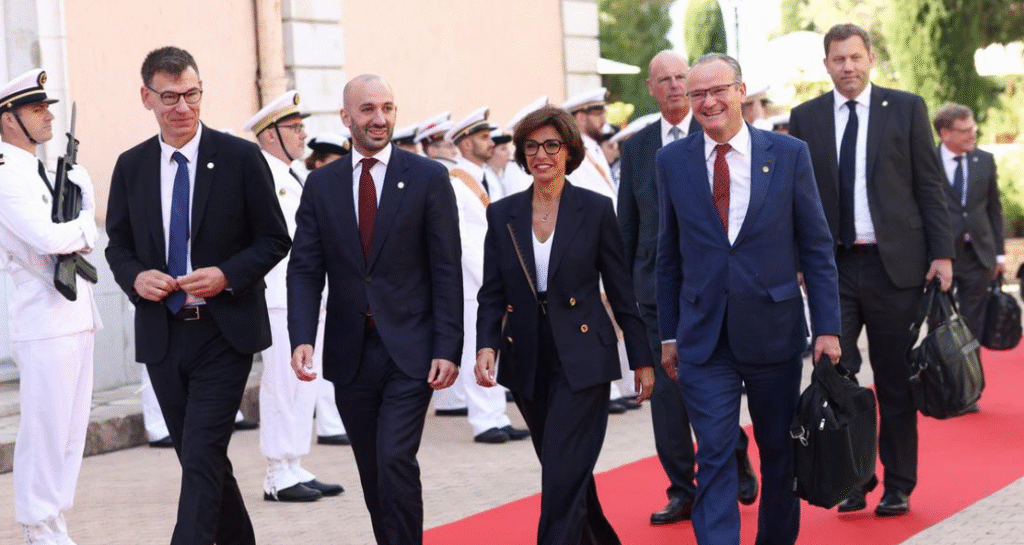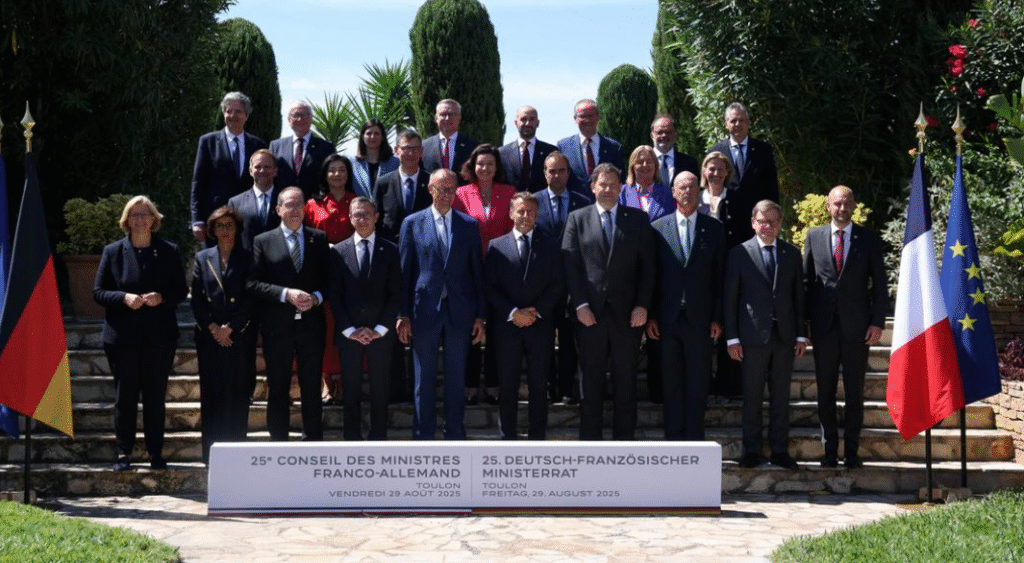French President Emmanuel Macron and Germany’s new Chancellor Friedrich Merz recently met in Paris, emphasizing the need to strengthen Franco‑German ties as the cornerstone of European stability. The meeting aimed to demonstrate that the two nations remain committed to driving Europe forward, despite political changes and external pressures.
Franco‑German Security and Joint Military Efforts
A major highlight of the discussions was defense cooperation. Macron and Merz agreed to launch a Franco‑German Defence and Security Council to coordinate military strategies, intelligence sharing, and procurement decisions.

The council is expected to focus on joint planning against potential threats from Russia, cyberattacks, and regional instability. Both leaders also committed to supporting Ukraine, while modernizing European armed forces with advanced technology.
Overcoming Energy Disagreements: Nuclear and Green Energy Collaboration
Energy policy has historically divided Paris and Berlin. Germany’s decision to reconsider its anti-nuclear stance now aligns with France’s pro-nuclear position, easing tensions over EU energy policy. Both nations plan to invest in low-carbon energy, hydrogen projects, and green innovation while keeping nuclear power a key element of the European energy mix.
This alignment aims to ensure energy security, reduce reliance on fossil fuels, and meet climate targets, giving Europe a stronger stance in global negotiations on climate and energy.
Despite renewed optimism, trade remains a sensitive topic. France continues to defend its agricultural sector, seeking protective measures within EU trade agreements, while Germany pushes for broader market access and fast implementation of global trade deals.
Domestic Politics and the Challenge of Delivering Franco‑German Ambitions
Both leaders face domestic pressures. Merz leads a coalition government with differing party priorities, while Macron confronts opposition from far-right and far-left groups at home. These internal challenges may slow reforms and implementation of joint initiatives.

Franco‑German collaboration has long symbolized European peace and unity, dating back to post-World War II reconciliation. Today, that partnership is crucial in addressing emerging global challenges—from economic shifts to security threats.
The Macron‑Merz meeting serves as a reminder that while historical bonds create a foundation, the real test lies in translating shared vision into action. Their focus on defense, energy, and technology underscores Europe’s ambition to maintain strategic independence while protecting citizens’ prosperity.
Economic and Technological Cooperation: Building a Stronger EU
Beyond defense and energy, both nations emphasized cooperation in digital technologies, artificial intelligence, and industrial competitiveness. Joint initiatives in technology are intended to reduce European dependence on external suppliers, increase innovation, and foster economic growth. Collaboration in these sectors is key to maintaining Europe’s global influence and securing jobs across the continent.
Macron‑Merz partnership has the potential to reinvigorate the Franco‑German engine, shaping European policy and reinforcing the EU’s role on the world stage. Yet challenges remain: unresolved trade issues, industrial disputes, and domestic political pressures could slow progress.


 Germany updates: NRW holds election in key test for Merz
Germany updates: NRW holds election in key test for Merz